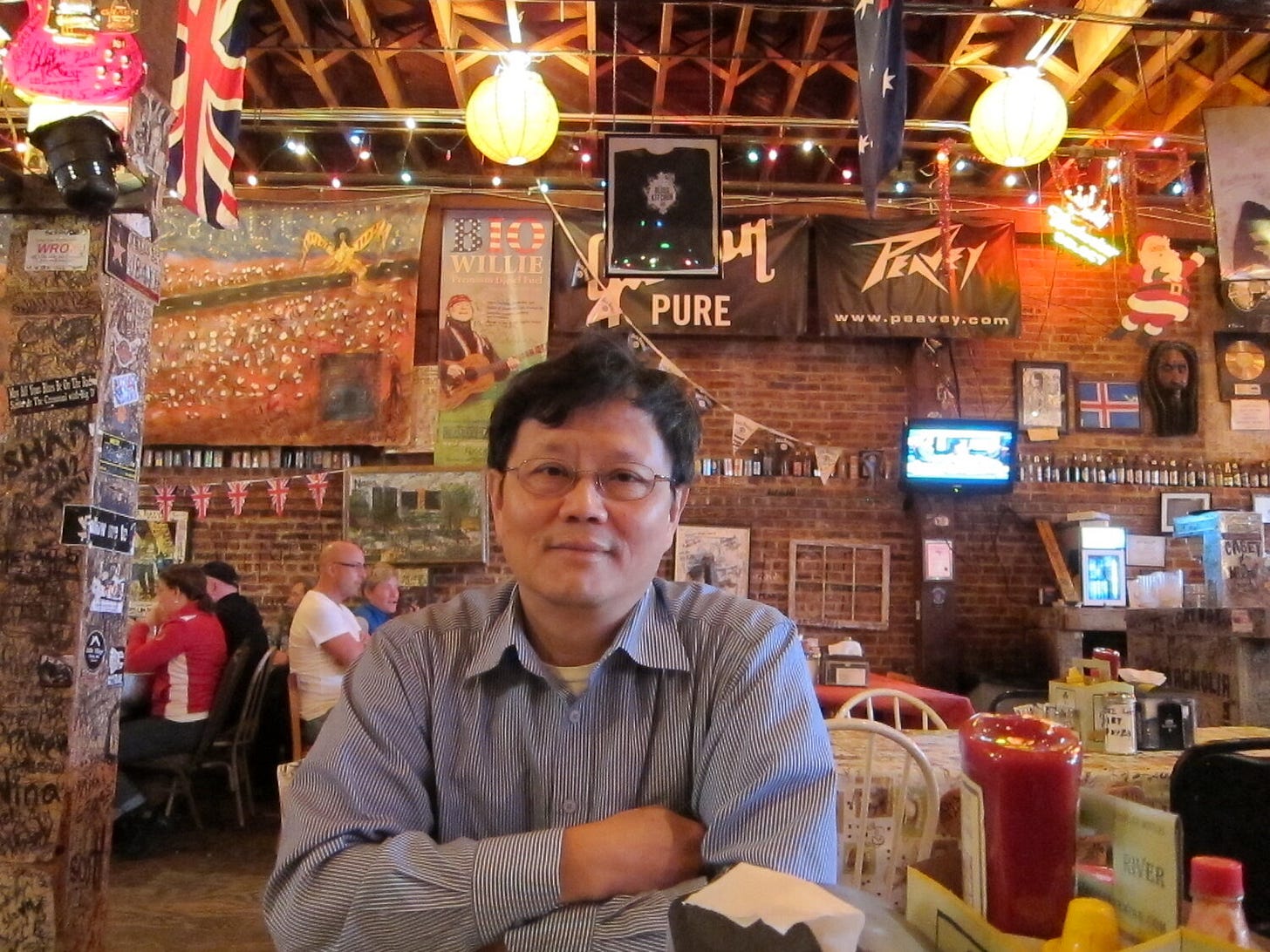Mississippi Transplant: Jianqing "John" Zheng
"There’s a saying in my culture: A tree that is transplanted may die, and a person who is transplanted has a chance to survive."
What does it mean to call Mississippi home? Why do people choose to leave or live in this weird, wonderful, and sometimes infuriating place? Today we hear from the professor, photographer, and poet John Zheng.
Where are you from?
I’m originally from China, and geographically from a metropolitan river city in Central China where I lived for thirty-some years.
When did you move to Mississippi and why did you move here?
I moved to Mississippi in the summer of 1991 to pursue graduate studies. After teaching at a college for about ten years, I switched my role to being a graduate student at the University of Southern Mississippi. I was lucky to have the USM Foundation fellowship established by the late Dr. Don George and his wife Mrs. Nell George. My initial goal was to earn a doctoral degree in literature, but it turned out I had two concentrations—creative writing and modern literature—because Southern has such a gorgeous creative writing program that I wanted to be in.
What does “home” mean to you? How does Mississippi fit into that definition?
Home means my native land, my homestead, and my family. It’s a place where I have lived for some years and nurtured a feeling of attachment to it. I have lived in Mississippi for thirty-one years and relocated from Hattiesburg to the Delta in 1996. Day by day and year after year, I have gained a sense of place from living and working in the Delta. This sense of place depends on familiarity. And this familiarity attaches a meaning to or brings out significance from my life and job here. The longer I live here, the more I know about the place, and the better sense I will have to associate myself with the place. And this sense of place remains in hibernation, but, for instance, after you are away for a two-week trip, your sense of place wakes you up with an eagerness to go back to it.
Honestly, the place where I came from has changed too fast. It’s no longer the place I can recognize. Its visual newness and expansion have wiped out many places saved in my memory.
Keep reading with a 7-day free trial
Subscribe to Rooted Magazine to keep reading this post and get 7 days of free access to the full post archives.




